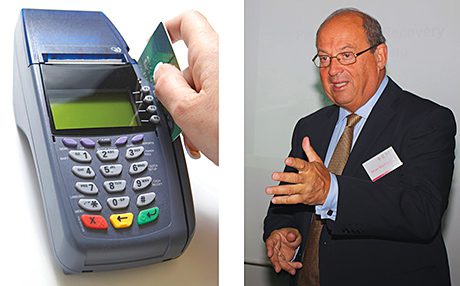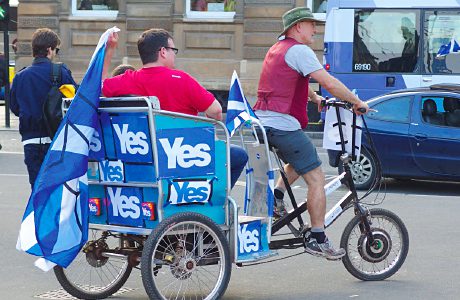Scotland’s independence referendum has lingering effects on fuel costs

THE people of Scotland may have answered no to the question of whether their country should be independent, but the mere possibility that it could have gone another way put pressure on UK petrol prices.
In the two months preceding the vote the price of crude oil fell from $108 a barrel to $98 a barrel, yet at Scotland’s forecourts, the price at the pump remained where it had been.
The cause, according to the Petrol Retailers’ Association, was the referendum.
In the weeks before the vote, when polls showed a sudden boost for the Yes side, the pound suffered its worst exchange rate performance against the US dollar since the collapse of Lehman Brothers triggered the global financial crisis in 2008.
From a high of over $1.71 in mid-August, the pound was weakened to below $1.65 and that held UK wholesale prices of retail road fuel up by nearly 2p a litre.
‘We arguably have got worse problems today than we had six months ago’ – Brian Madderson, Petrol Retailers’ Association
“If the pound had remained where it was at 1.71, then we would have seen some reductions at the pump because of the fall in crude price,” said PRA chairman Brian Madderson.
“What we’ve seen is that the fall in crude price has largely been off-set by the strengthening dollar, weakening pound.
“So we’re at a situation today where the wholesale costs are much the same as they were, even though the two major components – exchange rate and crude price per barrel – have changed quite significantly.
“And what is interesting is that for the first time in some years, the market seems to have discounted the nervousness around future supply because of geopolitical problems.
“We arguably have got worse problems today than we had six months ago: Russia and Ukraine; Syria still in civil war; ISIS in large swathes of Iraq; Israel and Palestine; civil unrest in Libya; and problems with supply in Nigeria. Lots of traditional hotspots are still in some difficulty.
“I think overlaying this is the fact that shale oil and gas in North America is coming on strong and fast so that a lot of the supply worries that might have been there are diluted by the fact that North America is able to ship out a lot of product from the rapidly developing shale fields.”
The result has been a curious equilibrium for petrol prices in the UK. In the week following the No vote, Sterling appreciated 0.8% and a fall at the pumps is likely follow. However, with proposals for constitutional change in the UK remaining high on the political agenda, nothing is for certain.

Meanwhile, the Petrol Retailers’ Association has welcomed the news that European courts have rejected an appeal from Mastercard over interchange fees.
Mastercard had appealed against a proposal from the European Commission to cap interchange fees involved in debit and credit card transactions, but the Court of Justice of the European Union ruled against it last month.
The PRA now hopes the ruling will spur European lawmakers to proceed with the cap, which has been in limbo since it was proposed last year.
The planned regulation would limit interchange fees on debit cards to 0.2% and credit cards to 0.3%. While each country could choose to lower those levels within their borders, they wouldn’t be able to raise them.
Madderson said the current situation was very unfair. One heavily promoted bank card which advertises cashback for its own customers is a case in point, he said. To retailers it charges a premium and on fuel sales it costs them somewhere between 50 and 100% of their gross margin.
“With the premium cards the bank is actually determining how much the retailer pays with no opportunity for the retailer to negotiate or decline.
“We’re now meeting with HM Treasury officials to show them just how unfair the present card fee arrangements are for retailers.”




















